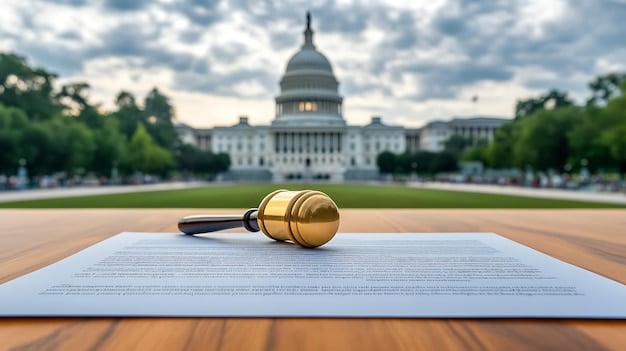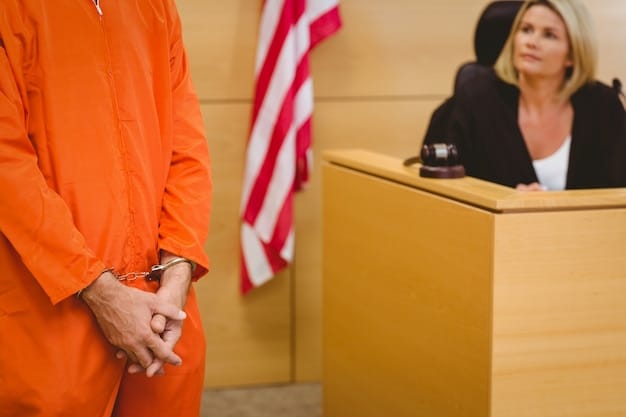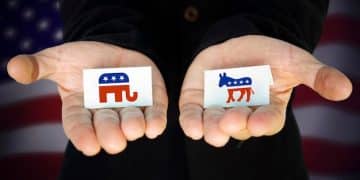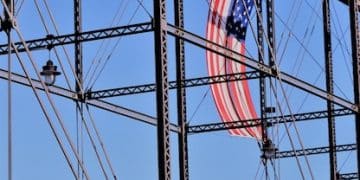Implications of Congressional Investigations on Executive Branch Authority

Current congressional investigations into the executive branch can significantly impact its authority, potentially leading to limitations on power, increased oversight, and shifts in public perception.
Congressional investigations into the executive branch are a critical component of the U.S. system of checks and balances. Understanding the implications of the current congressional investigations on the executive branch’s authority is crucial for grasping the dynamics of American politics.
Understanding the Scope of Congressional Investigations
Congressional investigations serve as a vital tool for oversight, allowing Congress to scrutinize the actions of the executive branch. These investigations can cover a wide range of issues, from potential abuses of power to mismanagement of government resources.
Historical Context of Congressional Oversight
The power of congressional investigation is deeply rooted in the Constitution, which grants Congress broad authority to gather information needed for legislative purposes. Over time, Congress has used this power to investigate numerous presidential administrations.
Types of Congressional Investigations
Congressional investigations can take various forms, including inquiries by standing committees, select committees, and special investigations. Each type serves a different purpose and has a unique scope. Committees such as the House Oversight Committee or Senate Judiciary Committee can launch inquiries into government operations.
- Standing Committees: These permanent committees have jurisdiction over specific areas, such as finance or defense.
- Select Committees: These temporary committees are created to investigate specific issues or events.
- Special Investigations: Conducted for issues needing thorough investigation.
The scope of congressional investigations can significantly impact the executive branch by challenging its authority and influencing public opinion regarding the executive actions.

Legal and Constitutional Framework
The legal and constitutional framework governing congressional investigations defines the boundaries of congressional power and ensures that the executive branch is held accountable. Understanding this framework is essential for assessing the legitimacy and impact of investigations.
The Power of Subpoena
Congress has the power to issue subpoenas, compelling individuals to testify or produce documents related to an investigation. This power is critical for gathering information and uncovering potential wrongdoing. Subpoenas can force testimony and document production.
Executive Privilege
Executive privilege allows the executive branch to withhold certain information from Congress, asserting that disclosure would harm national security or the integrity of the decision-making process. This privilege is not absolute and can be challenged in court.
Judicial Review
The courts play a crucial role in resolving disputes between Congress and the executive branch over investigative power. Judicial review ensures that both branches act within the bounds of the Constitution and existing laws.
A balance must be struck to uphold both congressional oversight and executive branch autonomy.
Impact on Policy and Legislation
Congressional investigations can have a far-reaching impact on policy and legislation, shaping the direction of government and influencing the legislative agenda. Investigations can expose problems, leading to new laws and reforms that address those issues.
Legislative Responses to Investigations
When investigations reveal serious problems, Congress may respond by enacting new laws that strengthen oversight, impose new regulations, or change existing policies. These legislative responses can be highly consequential.
Budgetary Implications
Congressional investigations can also impact the federal budget, as lawmakers may allocate additional resources to address problems uncovered during investigations or to strengthen oversight mechanisms. Congress can re prioritize funds based on findings.

Public Perception and Political Fallout
Public perception is a critical factor in determining the success and impact of congressional investigations. Negative findings can damage the reputation of the executive branch, eroding public trust and undermining its authority. How the public perceives these investigation findings is critical.
Media Influence
The media plays a significant role in shaping public opinion about congressional investigations, disseminating information and framing the narrative for the public. Media coverage can amplify the impact of investigations.
Public Trust and Confidence
Congressional investigations can either restore or erode public trust in government, depending on their outcome and how they are perceived by the public. Transparency is also key to the public’s perception of fairness and integrity.
Maintaining public trust requires diligent oversight with transparency. The media helps shape the narrative and the public can be supportive or against the political agenda.
Historical Precedents and Case Studies
Examining historical precedents and case studies can provide valuable insights into the implications of congressional investigations on the executive branch’s authority. Looking to the past provides a better understanding of how powers and political fallout have played out and been influenced.
Watergate Scandal
The Watergate scandal demonstrates the power of Congress to hold the executive branch accountable for wrongdoing, leading to the resignation of President Richard Nixon and significant reforms to campaign finance laws.
Iran-Contra Affair
The Iran-Contra affair illustrates the complexities of congressional investigations involving national security issues, raising questions about executive privilege and the limits of congressional power.
Impeachment Inquiries
Impeachment inquiries, such as those involving Presidents Andrew Johnson, Bill Clinton, and Donald Trump, show the potential for congressional investigations to lead to the most serious constitutional remedy: impeachment.
Each case study reveals nuances in the relationship between the branches.
Balancing Oversight and Executive Function
The relationship between congressional oversight and the executive function is complex and requires a delicate balance. Excessive oversight can hinder the executive branch’s ability to govern effectively, while insufficient oversight can lead to abuses of power.
Defining the Limits of Oversight
It is essential to define the limits of congressional oversight to prevent it from becoming overly intrusive or politically motivated. Guidelines and norms can help ensure that oversight is conducted responsibly and judiciously.
Promoting Cooperation
Fostering cooperation between Congress and the executive branch can help ensure that oversight is effective and constructive, rather than adversarial. Communication and transparency are essential.
Protecting Legitimate Executive Authority
It is also important to protect the legitimate authority of the executive branch, allowing it to carry out its constitutional duties without undue interference. Respect for the separation of powers is essential which ensures the balance between oversight and governance.
Striking the right balance is a perpetual challenge, requiring both branches to act in good faith and respect the other’s constitutional role.
| Key Concept | Brief Description |
|---|---|
| 🔍 Oversight Role | Congress investigates to ensure executive accountability. |
| 📜 Legal Framework | Subpoenas, executive privilege shape the investigation process. |
| ⚖️ Balancing Act | Necessary to check power but not impede executive function. |
| 📢 Public Impact | Investigations damage public opinion and alter political narratives. |
Frequently Asked Questions
▼
The main goal is to oversee the executive branch, ensuring accountability and transparency. Investigations help identify mismanagement or abuses of power needing legislative action.
▼
The executive branch can invoke executive privilege, claiming that the requested information is confidential and crucial for decision-making. However, this can be challenged in court.
▼
Investigations can significantly erode public trust if they reveal serious misconduct. Conversely, they can enhance trust if they lead to meaningful reforms and accountability.
▼
The media plays a crucial role in disseminating information about congressional investigations, framing the public’s perception of the issues. Media coverage can amplify effects.
▼
Possible outcomes include legislative reforms, impeachment proceedings, damage to reputation, and shifts in public perceptions of government integrity and effectiveness. Legislation can also be created.
Conclusion
In conclusion, congressional investigations into the executive branch play a crucial role in maintaining checks and balances within the U.S. government. The implications of these investigations can range from policy changes to shifts in public perception, underscoring their significance in shaping the dynamics of American politics. By understanding the legal framework, historical precedents, and potential impacts, citizens and policymakers alike can better navigate the complexities of this essential aspect of democratic governance.





